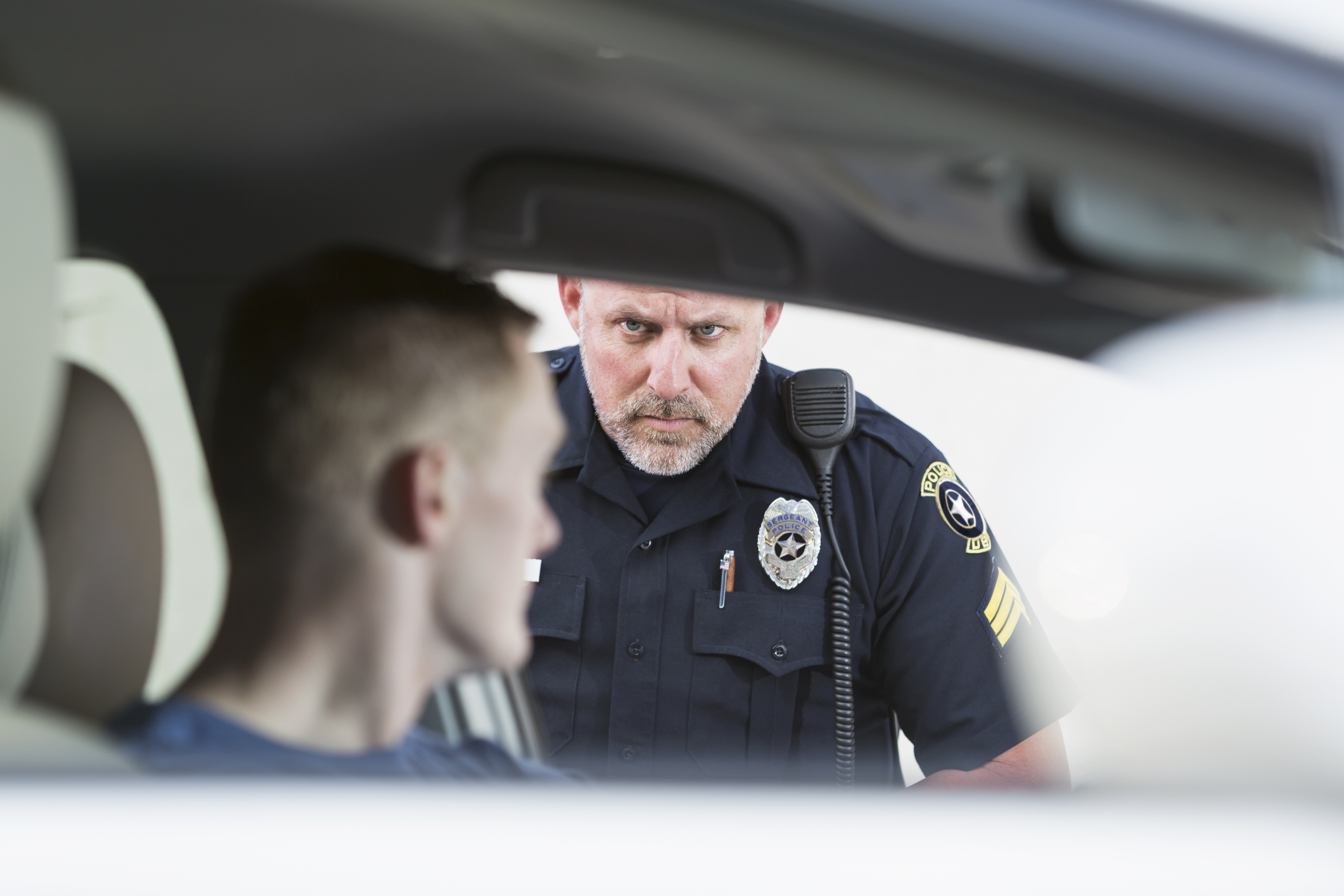Six Questions You Need to Ask During Interactions with the Police

Any encounter with a law enforcement officer can be intimidating and frightening. Even when you have not committed a crime and have nothing to hide, being detained by a police officer is stressful. Knowing what to do and what to say can be beneficial if the police decide to detain you.
What Should You Do if the Police Stop You or Question You?
Try to remain as calm as possible. Panicking makes the situation worse. You want to have a clear mind during your interaction with the police officers.
Do not resist or argue with the police officers. If you resist, the police officer may arrest you immediately. It is best to remain respectful and polite to avoid escalating the situation.
Questions to Ask Police Officers if You Are Stopped
Six questions you should ask if you are stopped by a police officer and questioned are:
1. Am I Being Detained?
Always ask if the police officer is detaining you. If the officer confirms he is not detaining you, then ask the officer if you are free to leave. When the officer confirms you are free to leave, walk away.
When you are detained, you cannot leave until the police officer tells you that you are free to go. In most cases, a police officer detains a person when the officer has reasonable suspicion that the person committed a crime. Note, this only permits an officer to detain a suspect briefly. You can only be detained for extended periods and/or placed under arrest if an officer has probable cause to support those actions.
2. How Long Will I Be Detained?
The police should not detain a person for an unreasonable length of time. You are permitted to ask the officer how long he intends to detain you. However, do not expect the officer to give you a specific answer.
Again, do not argue with the police. Focus on memorizing what the police officer said when you asked him how long you would be detained. If you were unreasonably detained, your criminal defense lawyer would need as much information as you can remember about the incident.
3. Why Am I Being Detained?
The officer may or may not tell you why he is detaining you. A police officer may ignore your questions. Do not give in to the urge to fill the silence with an argument about why you should not be detained.
Talking to the police generally never works in a person’s favor. If you are detained, the police are likely gathering more information to make an arrest. Anything you say could give the officers additional evidence to make an argument of probable cause for an arrest.
4. Am I Under Arrest?
If the officer confirms that he is detaining you, try asking if you are under arrest. The officer may give you additional information that you can tell your attorney. Also, if you are being arrested, you need to exercise your right to remain silent and avoid a charge of resisting arrest.
5. Do You Have a Search Warrant?
If an officer detains you, he may pat you down to ensure that you are not carrying any dangerous weapons. Whenever an officer asks you if he can search your person, home, or vehicle, ask if the officer has a search warrant. If there is not a search warrant, refuse to consent to the search.
A police officer may go ahead with the search without a search warrant. If so, make sure you tell your lawyer immediately. Evidence that is seized illegally can be inadmissible in court.
6. Can I Speak to a Lawyer?
Other than asking the above questions, remain silent. Do not answer questions or make a statement. Your cooperation only gives the police more information and evidence.
You have the right to consult with an attorney and have an attorney present during questioning. Exercise that right. If the police arrest you, ask for a criminal defense lawyer and then stop talking.
Depending on the criminal charges against you, you could face severe penalties. Criminal penalties may include lengthy prison sentences, fines, home detention, probation, and other punishments. A criminal record could impact your future career choices, where you live, the right to voice, and the right to own a firearm.
A criminal defense lawyer can review your case to determine if your rights were violated at any point during the process. Your lawyer also reviews the charges against you and the evidence the state has to determine the best defense strategy for your case.
Before you decide how to proceed, make sure you understand your rights and options.
The police nor the prosecutor will be honest with you about your case. Their priority is to obtain a conviction. Make sure you get your advice from an attorney who fights for the rights of individuals accused of crimes.
To learn more, call our Los Angeles criminal defense law firm at 213-995-6767 or visit our contact us page to send us an email.


